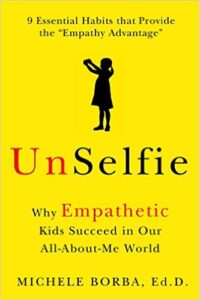Let’s face it, friends play an enormous part of our children’s self-esteem and success quotient for life. I’m often asked whether parents really can influence their children’s ability to make friends. My answer is always a resounding: “Yes!” After all, parents can be a tremendous impact on kids’ social lives, but they can hinder and even harm their children’s friendship chances as well.” Here are ten ways parents can rain on their kids’ social parade. (That’s a hint: so watch out, Mom and Dad! Just a few things to think about!)
1. Set a Terrible Example
Do you tell your kids to have good manners, but then verbally abuse your waiter? Do you tell your kids not to talk about people behind their back, and then pick up the phone to gossip? Don’t expect your kids to be a good friend unless you are.
2. Be a Pushy Stage Parent
Do you insist that your shy son have a huge birthday party even though he’d rather invite his one close friend? Have you tried to make play dates for your kid from names on the social page? Don’t think you can muscle your kid into friendships that only you care about.
3. Act Like a Micro-Managing Drill Sergeant
Do you orchestrate every minute of your child’s time with his friends? Do you hover at every play date constantly darting back and forth with some concern? Don’t hyper-parent or prevent your child from gaining his own friendship experiences.
4. Make Your Home as Sterile as an Operating Room
Does your child’s friends feel like they ought to wear white gloves when they come over? Do you insist they take off their shoes and never touch anything? Don’t be so up tight about being orderly that your kid and his friends can’t feel relaxed.
5. Act Like a Brontosaurus
Do you embarrass your kids in front of their friends, by not understanding their language or culture? Do you insist that your kid dress like he’s starring in Grease? Don’t refuse to change when it comes to customs that are really important to your kids and their friends.
6. Put on the Robe and Pick Up the Gavel
Are you constantly criticizing the way your child tries to make friends? Do you eavesdrop on his conversations, and tell him what he should have said? Don’t be critical that you discourage your kid from taking each step towards learning new friendship skills.
7. Stick that Nose in the Air
Are your kids’ friends never good enough for your standards? Do you disrespect, ignore, never take the time to sit down and find out who they really are? Don’t dismiss your child’s friends without appreciating what it is about them that your child values.
8. Be Your Kid’s “Bestest” Buddy
Are you more concerned about your kid’s liking you rather than setting limits? Do you want your kid to be popular that you make your home the most permissive spot on the block? Don’t forget you’re the parent and need to keep up the standards.
9. Chucking in that Towel
Do you feel that no one had to help you with friendship issues, so why should you bother? Don’t assume there’s anyone better than you for supporting your kids’ efforts to learn friendship skills or that he can do it without you.
10. Living in a Little House of Horrors
Do you treat everyone in your family with respect? Do your children want to bring friends home? Are they proud of you and look up to you as their role model? Don’t expect your children to make friends and bring them home if your house is an unhappy place.
So how are you doing? Just remember: Using simple parenting solutions can make real differences on your children’s lives—especially when you choose ones that matter most in raising good kids then commit to making them become a habit in your daily parenting.
Best!
Michele
Dr. Michele Borba, Parenting Expert
 I am an educational psychologist, parenting expert, and author of 22 books.
I am an educational psychologist, parenting expert, and author of 22 books.
My new book, UNSELFIE: Why Empathetic Kids Succeed in Our All-About-Me World will be in print June 2016. (Yahoo!) I’ve spent the last five years researching and writing this book as well as literally flying around the world to find the best ways we can activate our children’s hearts. My goal is to create a conversation that makes us rethink or view of success as exclusively grades, rank and score and includes traits of humanity! It’s filled with common-sense solutions based on the latest science to help us raise compassionate, caring, courageous kids. It’s time to include “empathy” in our parenting and teaching!
For more parenting advice, follow me on twitter @MicheleBorba, or go to my website, MicheleBorba.

